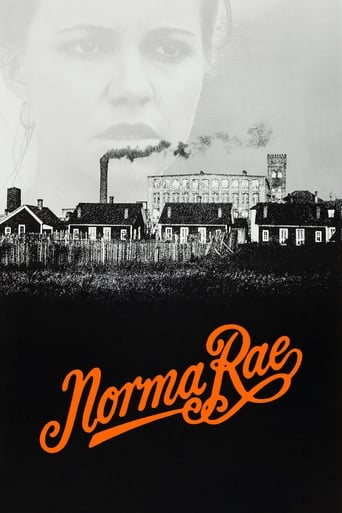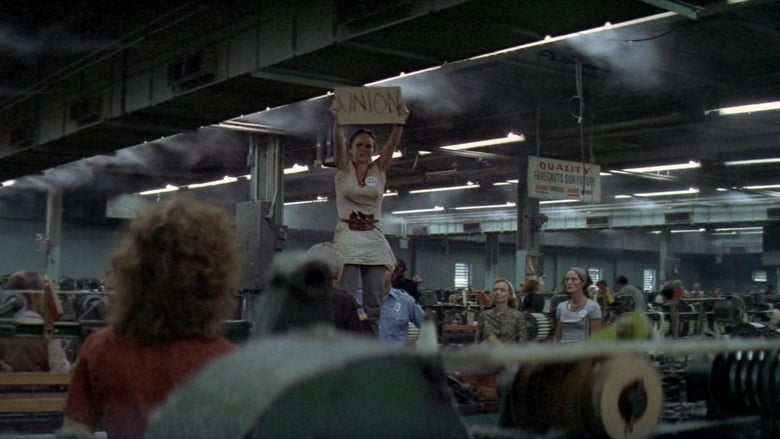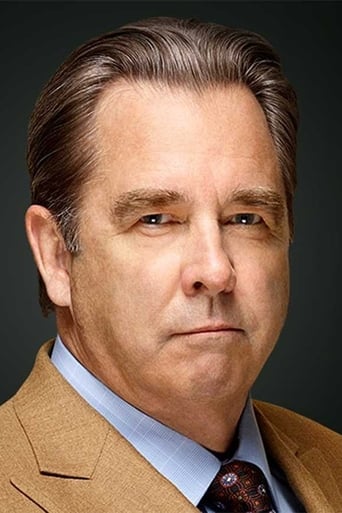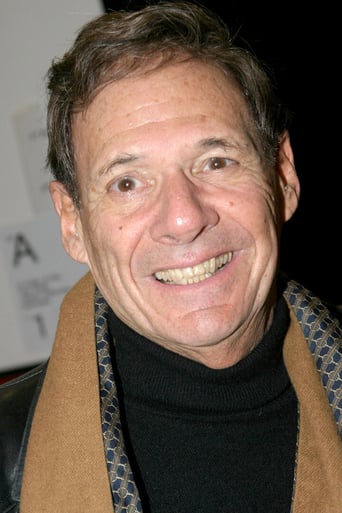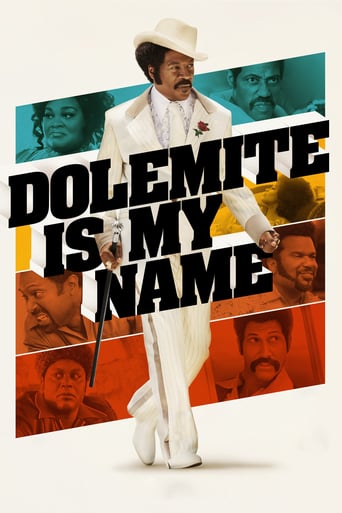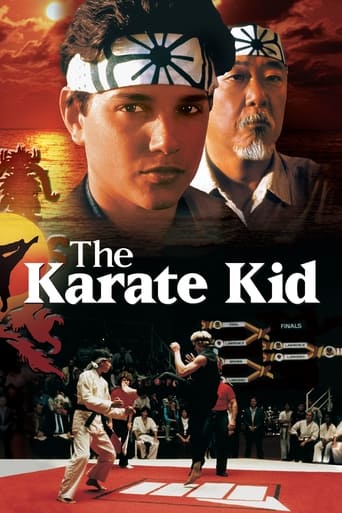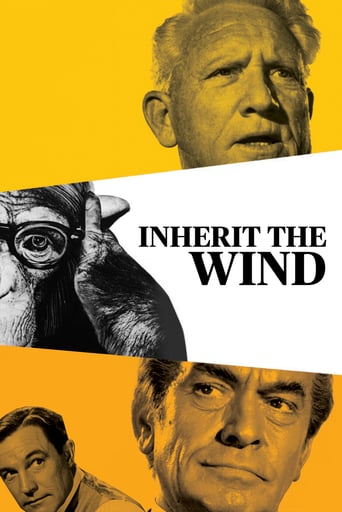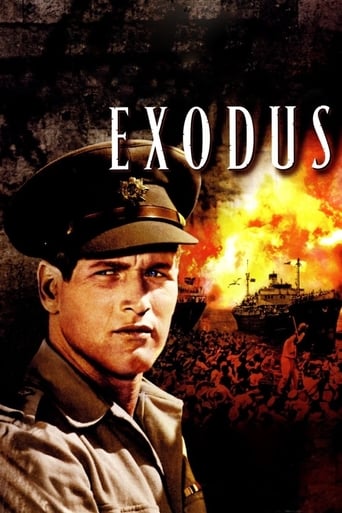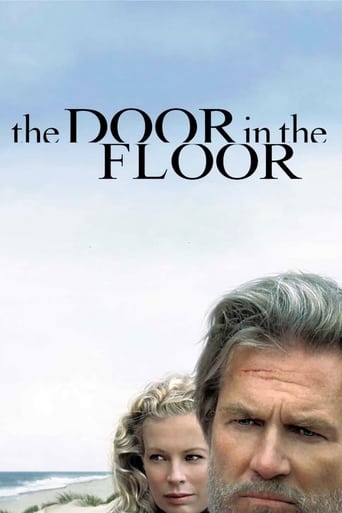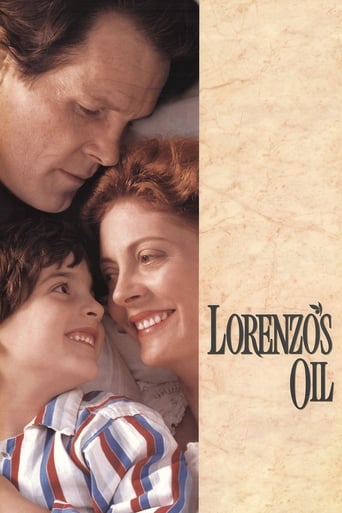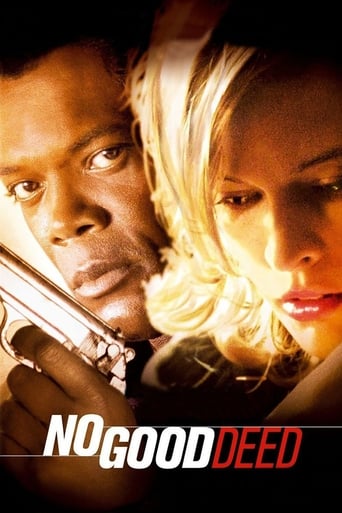Norma Rae (1979)
Norma Rae is a southern textile worker employed in a factory with intolerable working conditions. This concern about the situation gives her the gumption to be the key associate to a visiting labor union organizer. Together, they undertake the difficult, and possibly dangerous, struggle to unionize her factory.
Watch Trailer
Cast


Similar titles
Reviews
A movie that not only functions as a solid scarefest but a razor-sharp satire.
It is both painfully honest and laugh-out-loud funny at the same time.
It’s not bad or unwatchable but despite the amplitude of the spectacle, the end result is underwhelming.
It's simply great fun, a winsome film and an occasionally over-the-top luxury fantasy that never flags.
Norma Rae lives in a small Southern town in her parents' home with two kids from different fathers. She's a good Christian (with "a lapse or two" as would say the priest) who goes regularly to the church and sings in the choir. Like her parents, like most of the townspeople, she works on the cotton mill, and she wouldn't be surprised if her children followed the same path. As the song says "it goes like it goes" and this is how things go for Norma Rae.Martin Ritt directs every scene in the kind of documentary-like minimalism that was slowly fading from the screens in the late 70's, the New Hollywood parenthesis was soon to be closed for more commercial movies, and those like "Norma Rae" represented a last breath of freshness before the age of prefabricated entertainment. The realism of "Norma Rae" is constant, following a straight-to-the-point screenplay. As a result, it never loses its track by creating some glimpses of romances or sentimentality, as if it deliberately embodied the common attitude of the factory workers, real no-nonsense people who talk like they think and try not to think too much. The film opens with pictures of a little girl; we recognize the eyes and smile of Sally Field. The point is to show that this little girl could have been any little girl, except that her background immediately conditioned her life. That's why she accepts it, and that's why most people accept it. It's not fatality but a form of wisdom, of acceptation that life is mostly made of struggle and effort, and that some places in the country are so modest the sun-rays of the American Dream can't touch them. The town epitomizes the darkest aspects of capitalism: less the minimum wages, the layoffs or the hellish conditions of work than the workers' submission to a modern form of slavery, and their reluctance to form a union.The situation is unbelievable and intolerable, for us. But that's the crisis-stricken America of the 70's and people were no different from their elders of the Great Depression. And as I mentioned before, people didn't think too much, it obviously took some knowledge to speak about people's rights, and when education was lacking, silence was still a better option. "Norma Rae" chronicles the evolution of a woman who was no more or no less brave, intelligent or capable than her co-workers,but she was the first to follow an intruding union organizer from New York Ron Leibman as Reuben Warshowsky, because at least, she was the first to have faith in his fight.And this faith doesn't come from nowhere. The film starts with Norma Rae's mother (Barbara Baxley) temporarily losing her audition because of all the machinery's noises, later, it's made clear that her father (Pat Hingle) has a heart condition. Norma Rae paid too much a price for the factory and Reuben's arrival coincided with a time where she couldn't take it anymore, before the power, she had the anger and that was enough. As for Reuben, he crystallizes everything Norma Rae is not, he's from the city, educated, street-smart, politically engaged, and even his Jewish background accentuates his status as a 'foreigner' and awakens a latent form of Anti-Semitism. But Norma Rae is fascinated by these differences because anything different from her world can't be that bad. A total metamorphosis would have damaged the film's credibility, but Norma Rae changes without ever changing. It's impossible to review the film without applauding Sally Fields' performance that swept off all the main acting awards that year. With her nasal voice, short temper, and frail silhouette that contrast with the goons surrounding her, Norma Rae is the perfect incarnation of the 'little people', there's a fire burning inside her, but she's constantly underestimated and patronized. And with the help of Reuben, she'll learn how to raise her voice enough to be heard. The film tactfully avoids some clichés like having a romance, or turning her new husband, played by Beau Bridges, into a jealous and bitter man, it keeps focused on Norma Rae, her personal evolution and America's average working conditions in factories.The evolution reaches a pinnacle during the film's most iconic moment, that elevated Norma Rae to one of American Cinema's greatest heroines. Forced to leave the factory, as a last resort, she writes UNION in a piece of cardboard and turns it to every worker. One by one, they stop their machine. At the end, the factory is silent but this time, it's an eloquent silence that exudes what has been restrained during so many years. It's a silence that resonates as the loud sound of solidarity. After the incident, Norma is put in jail, and finally breakdowns in Reuben's car, in what I thought, was the most powerful moment of the film, because true to life. Because that's how a real woman would have felt, no matter what Reuben had to endure, she was still the daughter of these American little towns where people have two names.The following scene might be too sentimental but it's crucial because it illustrates the deep changes in Norma Rae's personality, she tells her children about her past, her present so that they wouldn't learn it from strangers. They listen, nod, and go to sleep, then she's joined by her husband and become again the loving housewife she is. Everything will be different from there, but her conscience is clear and she knows no one would ever judge her, because at least, she stood up for her beliefs.And if "Norma Rae" is about anything, it's precisely the courage to stand up against injustice, even when we're alone, or especially when we're alone, because an injustice is only the sum of individual ones, and if they can't raise their voice, one must show the example. It goes like it goes but this is the only way it goes to victory ...
Very social and clever movie about ordinary girl who tries to awake her sleepy town in order that to fight for their rights. I became interested this film because recently saw remarkable drama "Rosa" with Bette Midler. I learned that she was nominated on Oscar, but winner became Sally Field with "Norma Rae" and I'm urgently became search its. "Norma Rae" is very absorbing and dramatic story, I'm really very strongly worried for characters of this film and I'm deeply imbued their troubles, because similar problems are very actually today and touching many ordinary people in all the World. This film makes you wonder about many important for us things and I strongly recommend its for watching to everyone. Maybe this film will be unite us, maybe no, but some important and right things in your hearts will remain exactly. .
For members of the audience who remember Sally Field from her performances in Mrs Doubtfire and Forest Gump, this film should come as a surprise. As the star of 'Gidget', playing a Californian surfer girl who had never heard of Charles Manson or Sharon Tate, Field was indelibly sweet and her persona seemed oblivious to the upheavals that the United States were undergoing in the late sixties. Field found herself in another television series called 'The Flying Nun', which was largely held in derision, even if it won the ratings. Let's just say that Sally Field was someone who put in a great deal of effort to sustain her credibility in the most arduous of circumstances. She was Burt Reynold's girlfriend for a time (although we shouldn't hold that against her,) and then won the part of Norma Rae; she promptly and surprisingly won an Oscar as Best Actress in a leading role for her troubles since no one had ever suspected that she could actually act. Her Oscar was a triumph, and nobody could begrudge her for it. Now, for the movie! Set in an industrial town in the South, where the only employment available is in a large woollen mills, Field plays a young woman with two children on the road to nowhere, working beside her mother in the mills after her father's retirement. Her mother is becoming deaf from a lifetime of drudgery and Field has a proposal from a man with his own children that she decides to accept because she simply has no other choice than to take him up on his offer. The mills have a bad name for not allowing its workers to join a union, and trouble arrives in the person of a dedicated union man from the North (played by Ron Liebmann) determined to take the issue up with management and have union benefits in place for the workers. Needless to say, the management is not vaguely interested; he befriends Norma Rae at a motel with one of her dates and she gradually becomes a committed union activist and an outspoken critic of the poor working conditions her and fellow workers are expected to endure.Directed by Martin Ritt with a distinctive Southern flavour and an eye for character and local detail, this is a pretty good film with an excellent leading performance from Field who I think deserved her Oscar. Her character starts off as none too bright, but she wins the audience over with the slow recognition that her life and the lives of others around her could, and deserve to be, much better. Ron Liebmann and Beau Bridges who plays Norma's husband provide good support and Field displays a wonderfully tough side to her character that audiences had not previously been aware of. She is cute, but also has spine, which is a very appealing combination.The movie doesn't patronise its audience; the subject of trade unionism is not often brought up in Hollywood movies, much less an entire movie being devoted to it. Finally trapped by the management and forced to serve a (short) time in jail, and almost losing her husband in the process, Norma Rae sticks to her guns and the film ends on an upbeat note as the union is voted into existence by the Norma's fellow workers. Liebmann returns to New York, providing closure to one of those rare relationships between a man and a woman in a Hollywood movie that is mostly one of friendship and regard.'Norma Rae' is one of those films with its heart in the right place, and it also delivers as entertainment with a leaning towards the left-liberal wing of politics. It works as an effective antithesis to the claptrap disguised as entertainment that promotes violence and militarism and is financed by Hollywood, meant to promote an agenda supporting blind adherence to authority and politically reactionary issues.
This is a rather nice movie, more gentle than disturbing, despite the social conflict involved. Ron Liebman, a union representative, comes down to a textile mill in the South and tries to organize the workers. He runs into indifference from the good folk of Shinbone or Monkey Junction or whatever it is, and hostility from the management of the plant. His first convert is Norma Rae, Sally Field, and she gradually develops an all-consuming enthusiasm, a moral calling, to get the union established. It costs her a good deal. Management attempts to buy her off by promoting her to a position in which she must check her father's work. Humiliating for him. He dies. She neglects her family -- her four kids of varying legitimacy and the guy she's living with, Beau Bridges. She was never exactly a flower of Southern womanhood but now she's become a mover and shaker and it naturally upsets people. But under Liebman's patient and humane guidance she recruits just about everyone and the union wins.Written and directed by the team that brought us "Hud" and "Hombre", it's remarkable as much for what doesn't happen as for what does.First, though, this cleared the path through the woods for any number of later films featuring declasse floozies who fight injustice -- "Erin Brokovich" being an example. This is an original and gets bonus points for it.As for what it leaves out, there is a set up for an affair between the charming Liebman and the frustrated Field -- but it doesn't happen, not even when the two are swimming alone, bare-assed, in a muddy river and talking about their private lives. What a temptation THAT must have been for the writers and if they had less in the way of resolution, it would have happened.The writers also managed to neatly sidestep the temptation to turn the mill's management into a horde of rotten, filthy, violent lawbreakers. They're hostile, yes, and careless about the welfare of their employees. (The women can't leave their posts, even when they're having their periods.) However, they are not evil thugs skulking in the shadows and they don't put the nocuous Liebman in the hospital. Management violates the law only in small ways. Liebman -- who is very law-savvy -- has a legal right to post his recruiting letters on the company bulletin board but management posts them so high up that only Wilt Chamberlain on stilts could read them. The only violence, and it's brief, is when some white workers clobber a black employee under the impression that African-Americans are banding together to lead the union so they can order the white folks around.The script isn't flawless. Ron Liebman is the sophisticated Jewish New Yorker who brings enlightenment to this benighted Southern outpost of civilization. He's a paragon of normality with no weaknesses. He introduces Field to Dylan Thomas. He teaches her Yiddishisms. A stereotype. I wish we'd been able to see him in some devalued activity. Maybe he could have a collection of panties in his dresser drawer or something.And the bravura scene in which Norma Rae is fired and about to be thrown out of the deafeningly noisy mill. She leaps to a table top and holds up a printed sign reading UNION. The employees stare at her without expression. Eons seem to pass while she slowly rotates so that everyone can read the sign. Then one woman turns off her machine. Slowly, one by one, the others follow suit until finally the mill is completely and shockingly silent. A great movie moment but it jars with its lack of logic. When the final vote is taken, almost half the employees vote AGAINST the union. So where were these right-to-work people when the machines were being shut down? I've singled out these two flaws because they are buried under the multitude of virtues in the rest of the script. The story is pretty moving, and I applaud it for sticking as closely as it does to reality. When they part after their joint success, Liebman and Field don't even kiss good-bye. It's hard to imagine.

